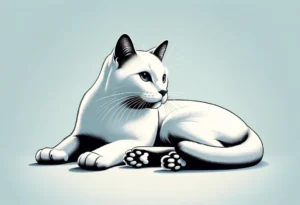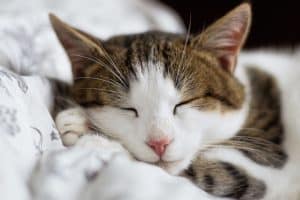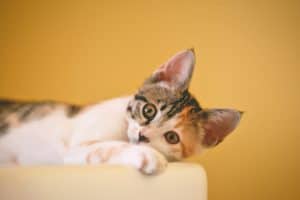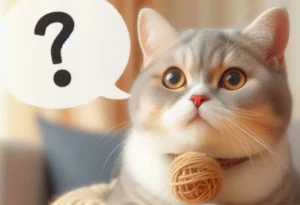Cats are known for their playful nature, but have you ever noticed that some felines seem to be more playful than others? This behavior can vary greatly from cat to cat, leaving many owners to wonder why. So, why are some cats more playful than others?
Genetics
Did you know that a cat’s level of playfulness can actually be influenced by their genetics? Just like us humans inherit certain traits from our parents, cats can also inherit characteristics that affect how frisky they are. Certain breeds, such as the Siamese or Bengal, are known to be more active and playful than others. This is because of the genes that they carry, passing down a predisposition for playfulness from one generation to the next.
Environment
When it comes to a cat’s playfulness, their environment plays a significant role. Factors like the amount of space they have to roam and explore, the level of stimulation provided, and the presence of other pets can all impact how eager a cat is to engage in play. Cats thrive in environments that offer plenty of opportunities for play, such as climbing trees, interactive toys, and hiding spots to pounce on unsuspecting prey.
Extra Tip: Ensure your cat has access to a variety of toys and activities to keep them active and engaged. Rotate their toys regularly to prevent boredom and encourage playfulness.
Age
Kittens are like tiny balls of energy, always ready to pounce and play. As young cats, their playful nature is a crucial part of their development, helping them hone their coordination, hunting skills, and social interactions. However, as cats grow older, their playfulness can mellow out. Adult cats may still enjoy playtime, but it might be less frequent or intense compared to when they were younger. Remember, just like people, cats’ preferences and energy levels can change as they age, so be sure to adjust your playtime routines accordingly.
Health
A cat’s health plays a significant role in their playfulness. If your furball suddenly seems less interested in toys or interaction, it could be due to an underlying medical issue. Cats are masters at hiding discomfort, so subtle changes in play behavior can be a red flag. Keep an eye out for signs of pain or illness, such as decreased activity, hiding, or excessive grooming. Regular vet check-ups can help catch any health concerns early and keep your feline friend feeling their best.
Additional Unique Insight:
– Socialization: Cats that have been well-socialized from a young age are often more playful and outgoing compared to those with limited interactions. Encouraging positive social experiences can help boost your cat’s playfulness and overall well-being.
Remember, understanding your cat’s individual needs and personality is key to fostering a happy and playful companion. By considering factors like age and health, you can ensure your feline friend stays engaged, entertained, and living their best nine lives.
Socialization
Socialization plays a crucial role in a cat’s playfulness. Interactions with humans and other animals can greatly influence a cat’s playful behavior. Cats that have been properly socialized from a young age tend to be more playful and open to engaging with their environment. Positive experiences with humans and other animals can encourage a cat to be more playful, while negative interactions can lead to timid or less playful behavior.
Creating a stimulating environment with plenty of toys, scratching posts, and opportunities for play can also enhance a cat’s playfulness. Regular playtime and interaction with their human companions can further develop and maintain a cat’s playful behavior. Remember, socialization is key to fostering a playful and engaging relationship with your feline friend.
Personality
A cat’s unique personality traits can significantly impact their level of playfulness. Factors such as confidence, curiosity, and independence can all contribute to a cat’s play behavior. Confident cats are more likely to engage in playful activities and explore their surroundings with enthusiasm. Curious cats may be more inclined to investigate new toys and environments, leading to increased playfulness.
On the other hand, independent cats may exhibit bursts of playfulness but also enjoy solo activities and quiet downtime. Understanding your cat’s personality can help you tailor their play experiences to maximize enjoyment. Providing a variety of toys that cater to your cat’s unique preferences and energy levels can keep them engaged and playful.
Unique Insight : Introducing puzzle toys or interactive games can help stimulate your cat’s mind and encourage playfulness. These activities not only provide mental stimulation but also promote physical exercise, keeping your cat happy and healthy.
Exercise
Keeping your cat active and playful is crucial for their overall health and happiness. Regular exercise helps prevent obesity, strengthens muscles, and provides mental stimulation. Make sure to engage your cat in interactive play sessions daily to keep them entertained and active. This can include playing with toys, using laser pointers, or even setting up obstacle courses for them to navigate. Providing opportunities for your cat to exercise not only keeps them physically fit but also satisfies their natural instincts to hunt and play.
Toys
The right toys can make a significant difference in encouraging play in cats. Interactive toys like feather wands or puzzle feeders are great for stimulating your cat’s mind and keeping them entertained. Catnip toys can also be a hit with many felines, as catnip can trigger a playful response in some cats. Remember to rotate your cat’s toys regularly to keep them interested and engaged. Ball toys and toy mice are classic favorites for many cats, as they mimic prey and can ignite a hunting instinct. By providing a variety of toys that appeal to different senses, you can keep your cat entertained and playful for hours.
Dive into the fascinating world of feline play behavior and discover the factors that contribute to why some cats are more playful than others. Each cat has its unique personality and preferences when it comes to play, influenced by factors like breed, age, and individual temperament. Some cats may have a higher prey drive, while others may be more laid-back. Observing your cat’s behavior and adapting your playtime routines to suit their individual needs can help maximize their enjoyment and engagement. Remember, what works for one cat may not work for another, so it’s essential to tailor your approach to fit your feline friend’s preferences.
Alex, a passionate animal lover, has experience in training and understanding animal behavior. As a proud pet parent to two dogs and three cats, he founded AnimalReport.net to share insights from animal experts and expand his knowledge of the animal kingdom.









